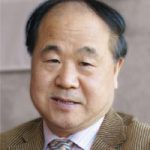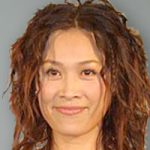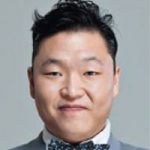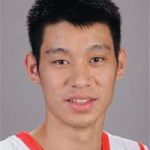A list of the ‘hottest’ or most popular expressions, terms or phrases in China in 2012 was compiled by the Internet companies Hudong Baike, Sohu Weibo, and a few other media organisations. Experts from these organisations chose a total of twenty phrases that went into an online poll page where readers could vote for any terms or expressions that they regarded as the most current or important. The poll closed on 25 December 2012, with 4,175 people having cast votes. The top ten words and phrases are listed below, beginning with the most popular.
1. Diaoyu Islands (Diaoyudao 钓鱼岛)
The disputed islands claimed by China, Taiwan and Japan — see Chapter 1 for details.
2. ‘Are You Happy?’ (Ni xingfu ma 你幸福吗?)
A China Central Television (CCTV) program — see page 378 for details.
3. Liaoning Aircraft Carrier (Liaoninghao hangmu 辽宁号航母)
China’s first aircraft carrier, commissioned on 25 September 2012.
4. Loser (diaosi 屌丝)
Online slang (literally ‘penis thread’) initially used by wired young people to encapsulate feelings of being trapped in a dead-end existence. The term’s self-deprecation and lack of pretention was later undermined by its appropriation by celebrities and other successful individuals.
5. A Bite of China (Shejianshangde Zhongguo 舌尖上的中国)
This CCTV-produced documentary series presented mouth-watering images of cuisine from across the country and became a genuine hit.
6. Eighteenth Party Congress (Shiba da 十八大)
As expected, Xi Jinping replaced Hu Jintao during the Congress, which was held in November.
7. Mo Yan
The Shandong-born novelist who won the 2012 Nobel Prize for Literature — see Chapter 7 for details.
8. Voice of China (Zhongguo hao shengyin 中国好声音)
China’s licensed version of a Dutch singing competition TV show aired on Zhejiang TV; it featured Liu Huan, Na Ying and other stars of yesteryear as judges.
9. Yuanfang-speak (Yuanfang ti 元芳体)
In Wise Detective Di Renjie (Shentan Di Renjie 神探狄仁杰) — a TV mystery series about the adventures of the Tang dynasty magistrate Judge Dee (made famous internationally in the novels of Robert van Gulik) — Di frequently asks his associate Li Yuanfang for his opinion. ‘Yuanfang, what do you think?’ (Yuanfang, ni zenme kan? 元芳,你怎么看?) became a viral meme for inexplicable situations.
10. Gangnam Style (Jiangnan style 江南 style)
The hit song and online video by South Korean pop star Psy charmed audiences and spawned parodies in China (including one by Ai Weiwei). It also caused an increase in the use of the English word ‘style’ in advertising and magazine headlines. Predictably, editorials asked why China could not produce a similar, globally popular pop music hit.
11. 2012
Contrary to online buzz and hysteria about the Mayan calendar, the world did not end on 21 December.
12. WeChat (Weixin 微信)
Tencent’s fast-growing mobile phone-based text, image and voice messaging application stole some media limelight from Weibo/microblogging.
13. Toxic Capsules (du jiaonang 毒胶囊)
In April, CCTV ran an exposé on the use of industrial gelatin in drug capsules — see Chapter 3 for more on this and other food safety scandals.
14. Positive Energy (zheng nengliang 正能量)
This term refers to the concept of healthy, positive civic participation. It received a boost when it was adopted as the translation into Chinese of the title of popular psychologist Richard Wiseman’s Rip It Up. Party General Secretary Xi Jinping also frequently alludes to ‘positive energy’.
15. City of Sansha (Sansha shi 三沙市)
China’s smallest prefecture-level city was created on 24 July 2012 on a disputed island in the South China Sea.
16. Zhenhuan-speak (Zhenhuan ti 甄嬛体)
The dialogue in the smash hit palace costume TV drama The Legend of Zhen Huan (Hougong: Zhen Huan zhuan 后宫•甄缳传) featured archaic terms and speech patterns that inspired imitators in online forums.
17. Golden Rice (huangjin dami 黄金大米)
A US-funded study authored by a Tufts University scientist and two researchers affiliated with the Centers for Disease Control and Prevention in China tested Golden Rice — a strain genetically modified (GM) to be higher in β-carotene — on children in Hunan province. Neither the children nor their parents and teachers were aware that GM rice was involved. When the results of the 2008 study were published in August 2012, Greenpeace questioned the ethics of the trial.
18. London Olympics (Lundun Aoyunhui 伦敦奥运会)
The 2012 Summer Olympics, held 27 July–12 August in London.
19. Jeremy Lin (Lin Shuhao)
An American basketball player born to immigrants from Taiwan, Lin led the New York Knicks on a winning streak in February 2012, sparking a craze dubbed ‘Linsanity’ in the US and in China.
20. Bile Bears (huo xiong qu dan 活熊取胆)
Bear bile farming, in which bile is extracted from the gallbladders of living bears for use in traditional Chinese medicine, has been a focus of animal rights concern in recent years. The bid for a public listing on the Shenzhen Stock Exchange in 2012 by Guizhentang 归真堂 — a manufacturer of traditional Chinese medicines in Fujian including bear bile tonics — shone a spotlight on the issue. Animal rights activists made use of Weibo and traditional media to defeat the company’s plans for a stock market launch, or initial public offering (IPO).










